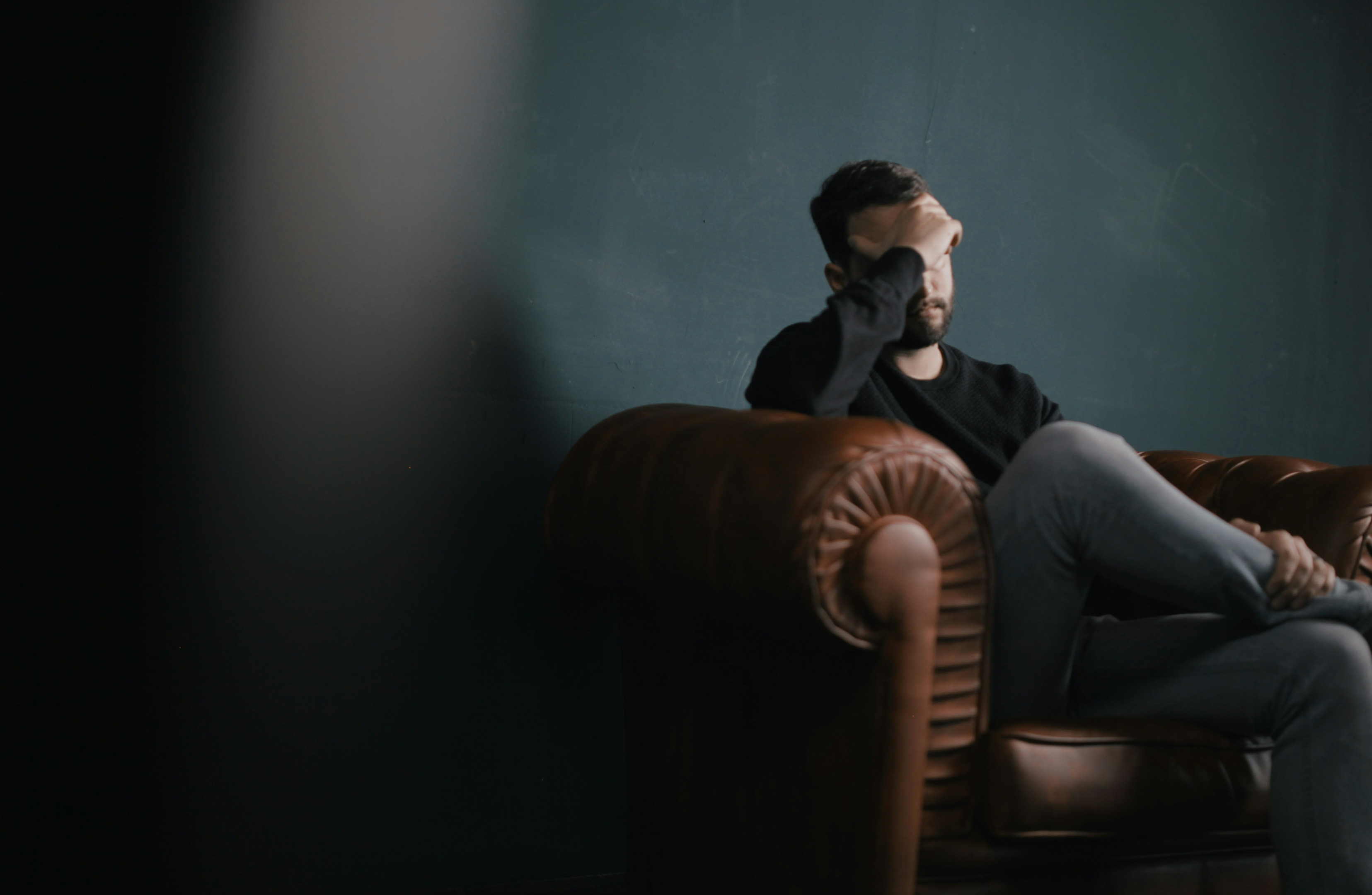
Understanding Pain and Suffering Damages in Virginia Personal Injury Claims
By
|
If you’ve been involved in a personal injury case in Virginia, you might be wondering about the value of pain and suffering damages. ‘Pain and suffering’ is the legal term that describes the physical and emotional distress caused by an accident. These non-economic damages can significantly impact the compensation you receive. In this article, we’ll delve into the intricacies of pain and suffering in Virginia personal injury claims, exploring the types of damages, factors influencing their worth, and common methods that are thought to be used to calculate them.
Types of Damages in Personal Injury Claims
In any personal injury case, damages typically fall into two categories: economic and non-economic.
1. Economic Damages: These are tangible losses that can be easily quantified, such as medical expenses, property damage, and other out-of-pocket costs. Lost wages also fall under this category and can be claimed even if you used sick or vacation leave for your time. Economic damages are relatively straightforward to calculate, relying on bills, receipts, and financial records.
2. Non-economic Damages: Unlike economic damages, non-economic damages are more subjective and include elements like pain and suffering, emotional distress, loss of enjoyment of life, and inconvenience. These damages aim to compensate the victim for the intangible harm experienced due to the injury. It is important to specifically articulate these types of damages to the adjuster on your claim because every case is different.
What You Can Be Compensated For in A Personal Injury Claim After A Car Accident
-
Property damage to your car
-
Lost wages
-
Inconvenience
-
Pain and mental anguish
While the first three of this list are pretty straightforward, the last two (that fall under “pain and suffering”) don’t have an easily fixed value. That’s mainly because, unlike things like medical bills, they are not incurred in the form of a set number of dollars. Pain and suffering is inherently abstract and subjective. The pain and suffering for one person is different from just about anyone else.
The ultimate question you have is, “How do you put a value on MY pain and suffering?” The answer to that question really lies with the jury if your personal injury case were to go to trial. The good news is that an experienced Virginia personal injury lawyer will be able to give you the best estimation. Juries everywhere are different, from state to state and even city to city.
When it comes down to it, we have to assume your case will go to a jury trial. There are a few factors worth considering when trying to determine the value of your pain and suffering in a Virginia claim.
Understanding Pain and Suffering
Like we said, pain and suffering encompass the physical and emotional distress a person endures due to an injury. In Virginia, there’s no fixed formula for determining the value of these damages, making it crucial to consider various factors when evaluating a personal injury claim.

Factors Influencing Pain and Suffering Damages
Several factors can influence the worth of pain and suffering damages in a Virginia personal injury claim:
1. Severity of Injuries
-
The more severe the injuries, and the longer that they last, the higher the potential for increased pain and suffering damages.
-
Permanent injuries (including scarring or disfigurement) or disabilities may result in greater compensation.
2. Impact on Daily Life:
-
Consider how the injuries affect the victim’s ability to perform daily activities, work, enjoy hobbies and how it has impacted your family and other relationships.
-
Factors like diminished quality of life and long-term consequences can elevate the value of pain and suffering.
3. Medical Treatment and Expenses:
-
The extent of medical treatment needed and associated expenses can influence the overall compensation.
-
The type of medical treatment provided and consistency in treatment also can affect the pain and suffering award. Gaps in treatment or delays in seeking medical attention may be used to argue that the injuries were not severe or immediate. Follow-up appointments and adherence to prescribed treatment plans contribute to the credibility of the injury claim.
-
Referral to specialists, such as orthopedic surgeons, neurologists, or physical therapists, may indicate the severity and complexity of the injuries. The opinions and recommendations of specialists can carry significant weight in assessing the extent of damages.
-
If the injured person had pre-existing medical conditions, the evaluation will involve determining how much of the current injuries and treatment are directly related to the accident. Differentiating between pre-existing conditions and new injuries is crucial in establishing liability and assessing damages.
4. Duration of Recovery:
-
Longer recovery periods often correlate with increased pain and suffering damages.
-
Chronic pain or extended rehabilitation can elevate the compensation amount.
Calculating The Value of Pain and Suffering
The reality is that proving pain and suffering in a personal injury claim is difficult and there is no precise formula. These three methods below are thought to be used to calculate the possible pain & suffering value in Virginia (but we’ll dive into the reality of how it’s done):
1. Multiplier Method:
-
This method involves multiplying the total economic damages (medical expenses, lost wages, etc.) by a certain factor, typically between 1.5 and 5.
-
The multiplier is determined based on the severity of the injuries and other relevant factors.
2. Per Diem Method:
-
In this approach, a daily rate is assigned for pain and suffering, and the total is calculated based on the number of days the victim experienced pain.
-
This method requires a clear understanding of the duration and intensity of the pain.
3. Comparison to Economic Damages:
-
Some use a ratio of pain and suffering damages to economic damages. For example, if economic damages are $50,000, pain and suffering may be assessed at 1 to 5 times that amount.
The Reality of How Pain and Suffering in a Personal Injury Claim is Calculated
While the three methods above may be what shows up when you search ways to calculate your pain and suffering, it is simply not how the industry works. The insurance companies do not merely multiple your medical bills. They review your claim based upon your injuries, medical treatment, medical bills, how the car wreck affected your life and how hard you have someone advocating on your behalf. That is why it is so important to find a lawyer who can evaluate your claim based upon their years of experience.
If you find yourself navigating a personal injury case in Virginia, seeking the guidance of an experienced personal injury attorney like our team at BenGlassLaw, is crucial. We assess the aspects of your situation, negotiate on your behalf, and ensure you receive fair compensation for the pain and suffering you’ve endured. Remember, your well-being is paramount, and the legal system is designed to help you seek the justice and compensation you deserve.
The ‘It’ Factors
Whenever we look at a case, we will look for “it” factors in the client’s story. This means that we are looking for an unusually compelling part of your story to find any opportunities for how your injury has added inconvenience and/or mental anguish to your life. For example, let’s say your hand was broken in your accident, and now you have limited movement; plus, before the accident, you were a pianist. A jury could see how your injury clearly caused pain and suffering.
There’s no exclusive list of “it” factors. They are aspects about your injuries and your life that weave together for a jury to truly take a second look and think, “Wow, this person dealt with significant pain and suffering due to their accident and/or injury.”
The fact is that there’s no mathematical formula to answer this questions. This is more of an art than a science, which again, is why having an experienced personal injury attorney on your side is crucial. But we can make two guarantees: 1) communication is key, and 2) we will put in the work to communicate your claim.
How Your Injuries Can Affect Your Pain & Suffering Worth
If your accident is one in which you incurred significant medical bills for treatment, property damage to your vehicle, and/or lost wages, juries are more likely to award greater amounts of pain and suffering. If you think about logically, it makes sense. High dollar medical treatment such as surgery usually requires more substantial recovery which means more pain and suffering.
Properly Describing Pain and Suffering
If your case were to go to trial, you get only the brief moments on the stand to articulate your pain and suffering. While it may seem that that’s a lot of time, in reality, it’s only a blip on the radar of your case. That means witnesses that can powerfully articulate their injuries with simplicity often receive better results from the jury. It also means that witnesses who are not as strong at communicating their physical pain and suffering properly will make a jury trial in Virginia difficult.
While it may seem unfair, human judgment is a central part of trials. Just like interviewing for a job, manners of speech, dress, and general presentation matter. Some people are better than others in these areas. When we evaluate a case, your “likability” and “credibility” are vital in the determination of the potential value of your pain and suffering.
At BenGlassLaw, we take the time to coach our clients to best communicate with a jury. It is important for our clients to be able to tell their story coherently so that they will receive the best chance to get a fair recovery for their pain and suffering.
Would a Virginia Jury Understand the Pain and Suffering Claim?
Let’s say, for instance, you were rear-ended at a high rate of speed. Your car suffered significant property damage, you were taken to the ER where you were diagnosed with injury (fractures, whiplash, tendon tears, neck pain, for example), and you required either surgery, extensive rehabilitation, and/or both. And you have doctors willing to support your case – another factor in evaluating the value of your claim.
In cases like these, the argument for pain and suffering will be one that a jury can easily understand. There’s a mechanism of bodily injury and medical treatment that are tangible and seemingly logical. This makes it more like that the valuation of pain and suffering will be greater.
However, in cases where there is low property damage, or you suffered injuries but didn’t see doctors until days or weeks after the accident (always make sure you go and see a doctor soon after an accident), or you weren’t diagnosed with anything but received substantial treatment, it’s hard for a jury to understand. Unfortunately, many jurors will have a hard time believing what they don’t see.
Have You Been Injured In An Accident?
Contact us today for a free consultation. This call is a free, zero-obligation case evaluation to determine if we believe that we could add value to your situation. Learn how we can use our years of experience and reputation dealing with auto accident injury claims to help you move forward.
The BenGlassLaw Personal Injury Process
Our process is designed to make this as easy as possible for you and your loved ones so that you can focus on recovery. For every single personal injury case that our team takes on, we have three promises that we are always focused on (and they’re what sets us apart from other firms):
-
We find all the pots of insurance money that might be available to you and pull as much money as possible out of those pots.
We are great at finding insurance money. Our lawyers do a thorough examination of available insurance coverage by looking at: the driver, the owner of the car, family members, employers, your auto policy, and your health insurance. We leave no stone unturned to find every dollar that we can.
-
Help you keep as much of that money as possible.
Some health insurance plans are entitled to reimbursement at the end of injury cases. Some health insurance plans say that they are, even when they aren’t! We help you keep as much of your money as we can. If you do not have health insurance, we can often negotiate discounts with your medical providers.
-
Make this process as simple and easy for you as we can.
The auto insurance industry wants this process to be complicated. They want it to be difficult for you to understand who should pay, when they should pay, and how much they should pay. Our team of lawyers simplifies this whole process for you. After you hire us, we stop the insurance company from calling you and your only job is to get medical care and tell us where you got it. We take care of everything else.
